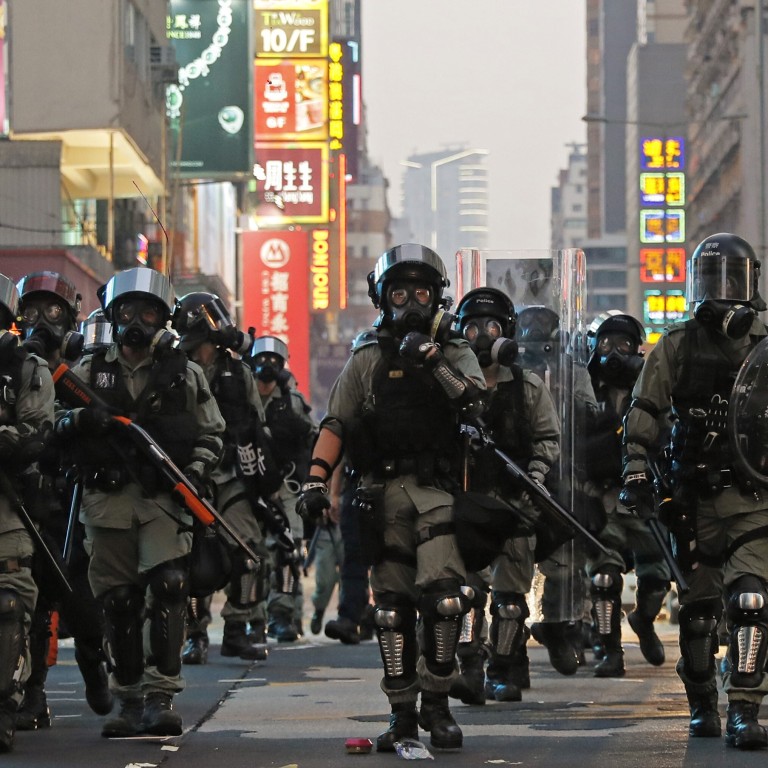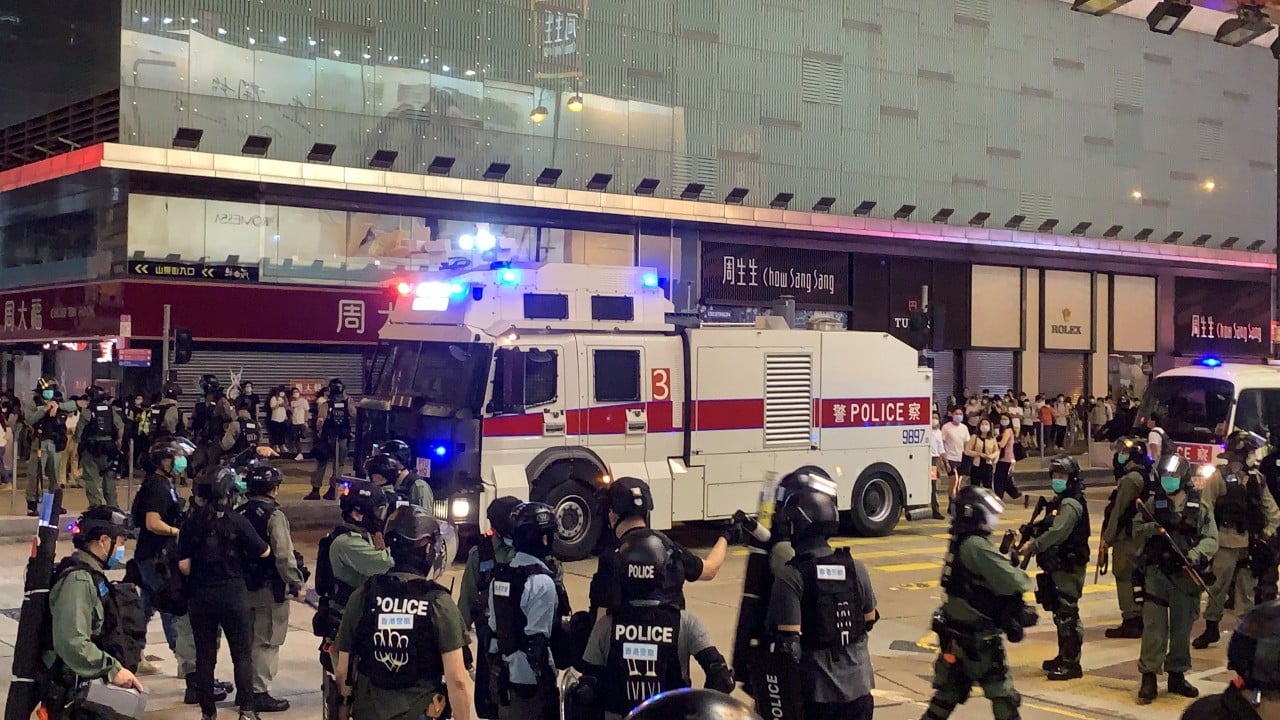
Hong Kong protests: about 130 firefighters and paramedics to join police as special constables to handle demonstrations
- Emergency service personnel to help police deal with anti-government unrest by dismantling barricades and other support tasks
- Government insider says police need staffing boost to handle demonstrations, which may stretch until the Legco elections in September
Some Government Flying Service crew will also come on board, bringing to nearly 700 the number of special personnel sourced from the five disciplined services.
“Given their expertise and first aid qualifications, the new entrants could, for example, help to immediately put out a fire, remove obstacles and provide medical help at protest sites. This could free up more police resources from ground zero of the demonstrations,” a senior government source said.
“But the force is still mapping out the duties of the new entrants. The commissioner of police will make the appointments as soon as possible.”
Police draw on past ‘mistakes’ to break up gatherings early with quick-fire arrests
Some sections in the government fear that violent clashes will last at least until September, when the Legislative Council elections are scheduled.
The Security Bureau confirmed the extension of the Special Constable Scheme to include members of all disciplined forces from this month.
“Under the Public Order Ordinance, the commissioner of police can appoint anyone willing to act as a special constable … Suitable training will be given to them,” it said in a reply.

Unlike special constables drawn from the correctional, customs and immigration authorities who are trained in arms and equipped with anti-riot equipment such as pepper spray, batons and pepper ball launchers, the newcomers have not undergone arms training as the nature of their work is different.
“But the new special constables will receive crowd-control and related training from police. Their safety is our top priority. Riot police would ensure their safety if they are deployed in battlegrounds,” the source said.

02:44
Hong Kong police deployed water cannon to patrol protest
Nearly 100 elite officers from the Correctional Services Department, nicknamed the “prison flying tigers”, were appointed in November as the first batch of special constables. The number was boosted to 200 earlier this year.
About 180 officers from the Immigration Department and a similar number of employees from the Customs and Excise Department were later brought in to help the force on a voluntary basis.
The special constables are often seen guarding important buildings such as government headquarters and Government House.

Dennis Ho Chun-pong, chairman of the Hong Kong Fire Services Officers Association, welcomed the move and said it would further strengthen unity among the disciplined forces. But he urged authorities to protect officers from doxxing and bullying.
“The authorities should take a cue from the recruitment process and the experience of the previous batches of special constables to better protect their personal data,” Ho said.
Why have Hong Kong police been paid HK$1.2 billion in overtime?
Lam Chi-wai, chairman of the Junior Police Officers’ Association, which represents 80 per cent of the 31,000-member strong force, expressed his gratitude to the two departments. He said the expertise of the special constables would help police restore order in the city faster and more efficiently.
“In the face of the social unrest, the special constables can support us with their expertise. They can offer first aid to those injured. This will help riot officers to concentrate on dealing with rioters on the ground,” Lam said.
Police deployed 3,500 riot officers last Sunday and Wednesday as two proposed laws sparked a new wave of protests, with thousands taking to the streets on Hong Kong Island. More than 560 people were arrested over two days.
On Sunday, a water cannon was used to disperse protesters and volleys of tear gas were fired in a series of confrontations as some radical protesters defied the government’s coronavirus-related crowd restrictions, blocked roads, smashed traffic lights, lit street fires and hurled bricks dug up from pavements at police.
Help us understand what you are interested in so that we can improve SCMP and provide a better experience for you. We would like to invite you to take this five-minute survey on how you engage with SCMP and the news.

